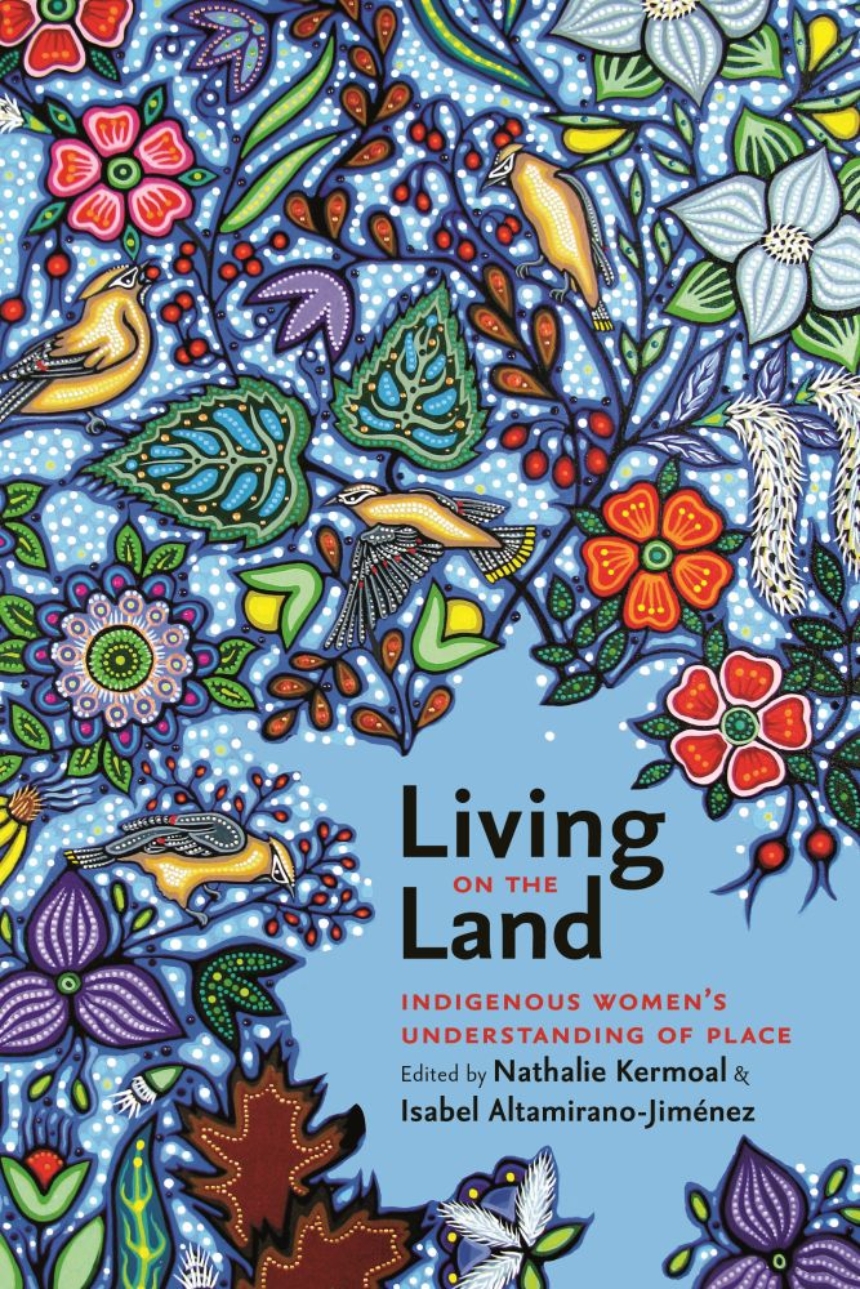Distributed for Athabasca University Press
Living on the Land
Indigenous Women’s Understanding of Place
An extensive body of literature on Indigenous knowledge and ways of knowing has been written since the 1980s. This research has for the most part been conducted by scholars operating within Western epistemological frameworks that tend not only to deny the subjectivity of knowledge but also to privilege masculine authority. As a result, the information gathered predominantly reflects the types of knowledge traditionally held by men, yielding a perspective that is at once gendered and incomplete. Even those academics, communities, and governments interested in consulting with Indigenous peoples for the purposes of planning, monitoring, and managing land use have largely ignored the knowledge traditionally produced, preserved, and transmitted by Indigenous women. While this omission reflects patriarchal assumptions, it may also be the result of the reductionist tendencies of researchers, who have attempted to organize Indigenous knowledge so as to align it with Western scientific categories, and of policy makers, who have sought to deploy such knowledge in the service of external priorities. Such efforts to apply Indigenous knowledge have had the effect of abstracting this knowledge from place as well as from the world view and community—and by extension the gender—to which it is inextricably connected.
Living on the Land examines how patriarchy, gender, and colonialism have shaped the experiences of Indigenous women as both knowers and producers of knowledge. From a variety of methodological perspectives, contributors to the volume explore the nature and scope of Indigenous women’s knowledge, its rootedness in relationships both human and spiritual, and its inseparability from land and landscape. From the reconstruction of cultural and ecologic
Table of Contents
Acknowledgements
Introduction: Indigenous Women and Knowledge - Isabel Altamirano-Jiménez and Nathalie Kermoal
1 Distortion and Healing: Finding Balance and a “Good Mind” Through the Rearticulation of Sky Woman’s Journey - Kahente Horn-Miller
2 Double Consciousness and Cree Perspectives: Reclaiming Indigenous Women’s Knowledge - Shalene Jobin Vandervelde
3 Naskapi Women: Words, Narratives, and Knowledge - Carole Lévesque, Denise Geoffroy, and Geneviève Polèse
4 Mapping, Knowledge, and Gender in the Atlantic Coast of Nicaragua - Isabel Altamirano-Jiménez and Leanna Parker
5 Métis Women’s Environmental Knowledge and the Recognition of Métis Rights - Nathalie Kermoal
6 Community-Based Research and Métis Women’s Knowledge in Northwest Saskatchewan - Kathy L. Hodgson Smith and Nathalie Kermoal
7 Gender and the Social Dimensions of Changing Caribou Populations in the Western Arctic - Brenda Parlee and Kristine Wray
8 “This Is the Life”: Women’s Harvesting, Fishing, and Food Security in Paulatuuq, Northwest Territories - Zoe Todd
Notes
List of Contributors
